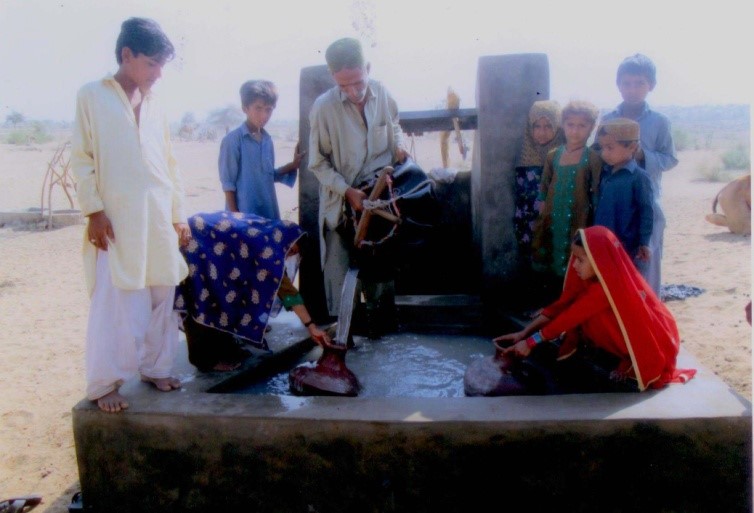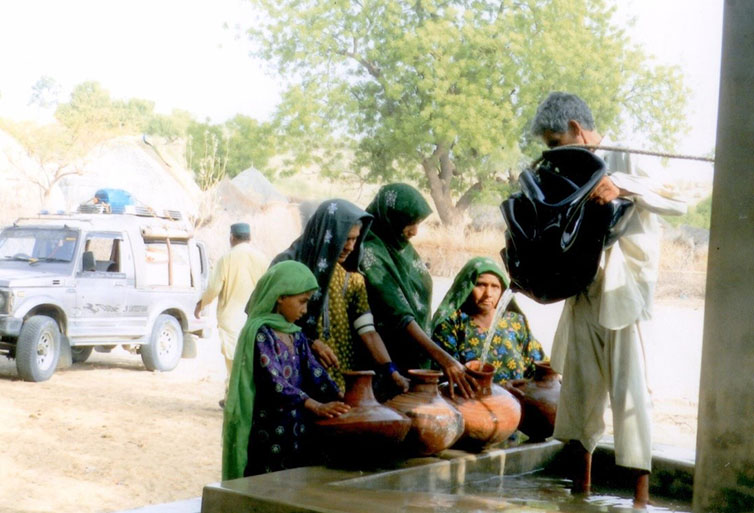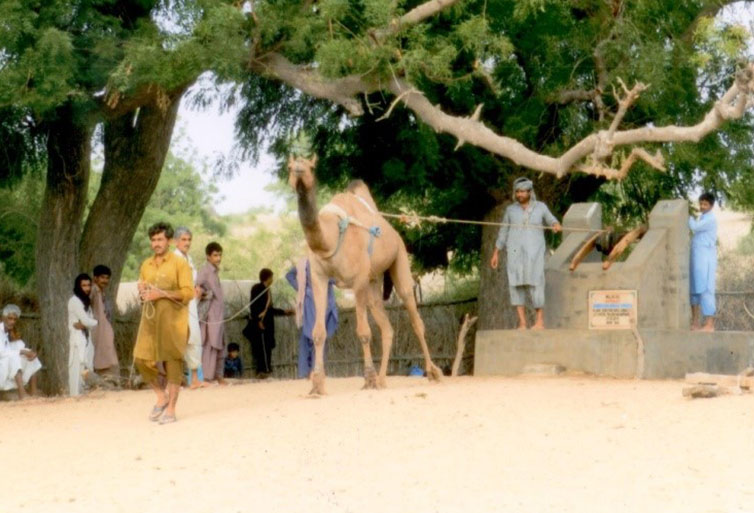Millions in Pakistan have no access to clean drinking water, a seemingly basic human right. According to UNICEF, around 50,000 children in Pakistan under the age of 10 die every year due to waterborne diseases like cholera, diarrhea, dysentery, hepatitis, and typhoid.
We at SKMF aim to provide underprivileged communities with clean water resources and sanitation facilities in order to address the problem of waterborne diseases. As part of our efforts, we have successfully rehabilitated 7 water filtration plants in densely populated areas of Orangi, Gulistan-e-Jauhar and Mahmoodabad. In addition, six water wells have also been rehabilitated in drought hit areas of Tharparkar. This specific project aims to ease the distance that women and children have to travel to in order to collect water for their daily activities. A water filtration plant has also been set-up at our Quaideen School Campus. It currently provides more than 250 gallons of clean drinking water for the students and their families.
- In Pakistan water related diseases cause nearly 60 per cent of child mortality cases
- More than 780 million people around the world do not have access to safe drinking water
- 72% of the urban population had access to improved sanitation facilities. In rural areas, the number was just 34%, bringing the country average to 47%
- Set up hand pump systems
- Build wells
- Establish Reverse Osmosis (RO) plants
- Water filtration for clean water into a school or community
- Clean water education and sanitation awareness programs
- Clean water and sanitation in schools



